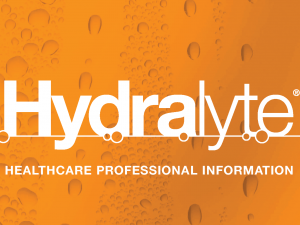Academic pharmacist Nataly Martini provides key information on Helicobacter pylori pathophysiology, diagnosis and evidence-based treatment strategies to enhance patient outcomes
Fee rises not enough but there’s hope for future negotiations
Fee rises not enough but there’s hope for future negotiations

Pharmacists balk at 3 per cent funding increase but there is some good news to come out of the latest National Annual Agreement Review negotiations, Paulette Crowley reports
There was a reluctant pragmatic acceptance that that’s the best deal you can get
As pharmacists consider the 3 per cent funding increase, most are disappointed but some sector leaders say there’s hope for better deals in the future.
The offer from Te Whatu Ora – Health New Zealand, was finalised at the National Annual Agreement Review (NAAR) negotiations on 20 July as a variation to the evergreen Integrated Community Pharmacy Services Agreement.
The variation includes a 20 per cent increase in immunisation payments, which means pharmacists have pay parity with general practices and will receive $27.84 per influenza vaccine. It also includes a 3 per cent rise ($21.7 million) in total funding, to be paid through the additional professional advisory services (APAS) payment.
Based on the projected total spend of $579.5 million on community pharmacy last year, total funding will climb to more than $600 million this year.
Pharmacy owners must sign by 16 September to get the increases, and it will then become effective on 1 October and backdated to 1 July.
The rise in vaccination payments shows intent that the Ministry of Health is willing to pay for clinical services, says Professor Rhiannon Braund, president of the Pharmaceutical Society of New Zealand.
“When I read my tea leaves I really believe that the Government and the ministry want to move forward,” says Professor Braund.
However, the 3 per cent offer is “suboptimal” and a “token gesture”. It came as no surprise, she says.
“It’s not great and doesn’t really take into account all the pressure that pharmacy’s under.”
The offer was as good as it would get this year, says Andrew Gaudin, chief executive of the Pharmacy Guild New Zealand.
“What you always do when you go into those negotiations is you seek to get the best possible offer. We’re satisfied in terms of the role that we played that we got the best possible offer that Te Whatu Ora could actually afford. There was a reluctant pragmatic acceptance that that’s the best deal you can get.”
Mr Gaudin was pleased to see Te Whatu Ora was seriously considering the two reviews, Statement from provider representatives: Services and Funding Model Review and Independent Review of Community Pharmacy Services (Stage One): Sapere, on wage parity that were published last year.
“They’ve made it very clear that community pharmacy will be involved and part of the wider work on pay parity that the Government’s undertaking,” Mr Gaudin says.
The failure to adequately meet the rising costs and wage pressures affecting community pharmacy was a source of continuing disappointment for Green Cross Health, says its group chief operating officer Alison Van Wyk.
“...provider representatives were repeatedly advised that the offer is the best available and actually not for negotiation, despite numerous attempts by Green Cross Health and other provider representatives to have funding further increased,” Mrs Van Wyk told Pharmacy Today by email.
She says she is pleased pay parity has finally been provided for pharmacists providing vaccinations.
With inflation around 7.3 per cent according to Stats NZ, a 3 per cent offer seemed like a slap in the face to pharmacists Pharmacy Today contacted.
“There’s clearly a difference between cost pressures and what that covers,” says Kristian Summerfield, owner of Unichem Summerfields Pharmacy in Queenstown.
“I would love it if my costs had only gone up 3 per cent. We’re not really in a position where we’ve got much option.”
Being paid more for services is positive but means nothing if there is no staff to provide them, says Michele Thompson, owner of Johnsonville Medical Pharmacy.
“There are very few boots on the ground at the moment. More services but less people to provide them is obviously not a great outcome.”
The vaccination fee rising is a plus for pharmacy, says Jessal Patel, pharmacy owner at Leabank Pharmacy.
“It’s recognising the time it takes to do different vaccinations,” says Mr Patel.
But he points out that if pharmacists administer more than one vaccination at a time they will be paid only one administration fee. “You might get the medication cost back but not the administration fee.”
FREE and EASY
We're publishing this article as a FREE READ so it is FREE to read and EASY to share more widely. Please support us and the hard work of our journalists by clicking here and subscribing to our publication and website






